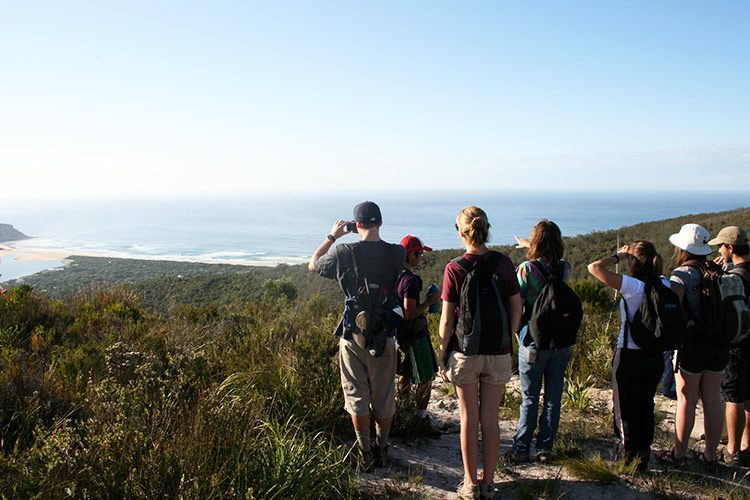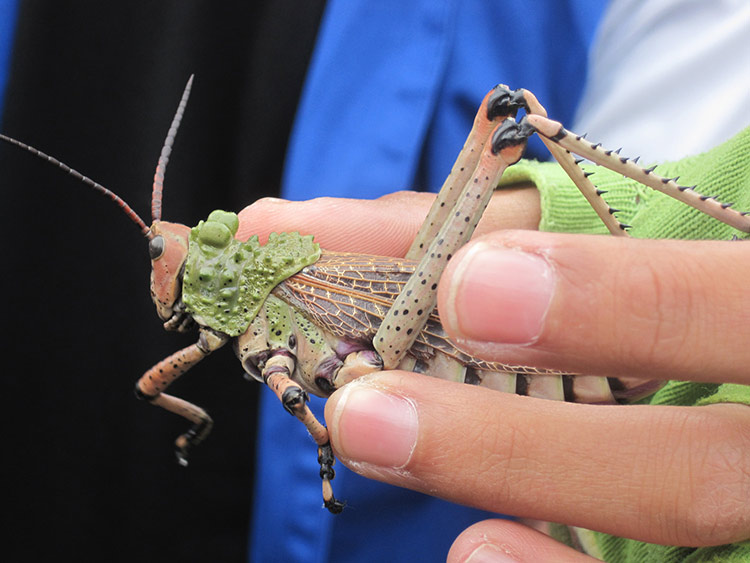Well, theoretically, yes. We’re already six weeks into the 2011 International Year of Forests, for what’s it’s worth. We go from International Year of this to International Year of that but until we come to understand – and then act on – the drivers of human behaviour we are hardly going anywhere. According to some recent studies, maybe we would be better off proposing an International Year of Love (or should I say Luurrrve..?)
Our immersion in today’s information soaked society is drowning us in distraction. We have become desensitized to the natural rhythms, signs, language and meaning hidden in the plain view of our living landscapes. As our saturated perception dulls and edits our reality, we come to face the evaporation of meaningful experience and the richness of our interactions with the ‘more-than-human world’ [1]. The schism between human-nature grows.
The core of the problem may be that we have lost and/or forgotten the feeling for what it really means to lose biodiversity. Knowledge, information and intellectual insight is of great value to society. But it is not an end in itself. From a sustainability perspective, it is only of use if one is capable of integrating that information into the human learning experience such that it acts as a catalyst for changing one’s attitudes, beliefs and behaviour. As David Orr says: “…part of the truth cannot be told; it must be felt.”
Quite simply, the more experiential and emotional our felt experience is, the more meaningful it becomes. It is this meaningfulness and, as a result, emotional attachment that drives behaviour more than our rational mind filled with scientific information. [2]
The quest becomes one of how to turn the tide and bridge divides for meaningfully reconnecting humans with nature. That the ‘experience of nature’ is central to this journey is clear. Furthermore, it is about reinforcing positive experiences as opposed to the well-worn and disempowering ‘the sky is falling’ messages.
The 2010 Annual Report from the IUCN’s Commission for Education & Communication states just as much: “We need to celebrate the awe and wonder we all feel for nature, and use that [those values] to inspire people towards a positive future, rather than scare them away from an extinction crisis.” So it is not the depressing account of the wildlife we are losing that will move us; it’s awe and wonder, enhanced by understanding, that inspire us to take action. Think “Love not Loss.”[3]
The short, sharp and snappy 2010 Futerra Report “Branding Biodiversity” [4] says it succinctly:
“As brand values go, you can’t get more powerful than wonder, awe and joy. Wielded expertly, the love message can, quite literally, conquer all. For the public, the biodiversity brand promise must frame the Love and Action messages. The promise is the formula: you can help the biodiversity that you love.”
But the questions remain: 1. How can we experientially create that wonder, awe, and joy? And 2. How can this be harnessed to change our thoughts and behaviour?
Research underpinning eyes4earth.org has been investigating that. We’ve been trying to grasp a better understanding of what we call ‘meaningful nature experiences’: i.e. the peak moments, and synchronistic encounters with nature which can shape the Love message.

What are the triggers, characteristics and conditions for such experiences? How are they affected by the richness of biodiversity? What insights can we learn in order to inform education for sustainability?
What we know already is that childhood (nature) experiences really count for a lot (in terms of fostering a love and inspiring action). But they are not limited there…and a profound experience is possible at any time throughout one’s life.
Meaningful experiences in nature may be an essential catalyst for the felt process of reconnecting humankind with nature. It is speculated that such experiences may spark a revitalisation of meaning in modern Man. Evidence suggests that powerful meaningful experiences with nature and wilderness have the ability to shift perceptions, awaken the soul and strengthen character by coming to give us a fleeting or lasting sense of meaning in the universe. As one experiences the ‘collapsing of boundaries’ between themselves and their environment, one may come to ‘know’, to feel a sense of ‘interconnectedness’ or a ‘oneness’ which fosters respect for biodiversity – all understandings of which are deemed to be critical in fostering pro-ecological behaviour and, quite simply, for social harmony and psychological wellbeing. This form of transformational learning may bring new realisations, new possibilities and new realities. Can there be a more compelling case for conservation? Can there be a better way of building resilience along the social-ecological continuum?
The International Year of Biodiversity may have officially long drawn to a close but the call for humanity to open up and explore the deeper meanings and sensory experiences of our reciprocal interactions with the living word around us remains.
So in the spirit of Valentine’s Day, maybe we should extend a bit of that expression of ‘Luurrve’ to Earth. The promise of short-term physical gratification and ego massaging may not be quite the same. But maybe that could be compensated by remembering just how good ‘aliveness’ feels in the quest to become fully human.

References:








Be the first to share a comment